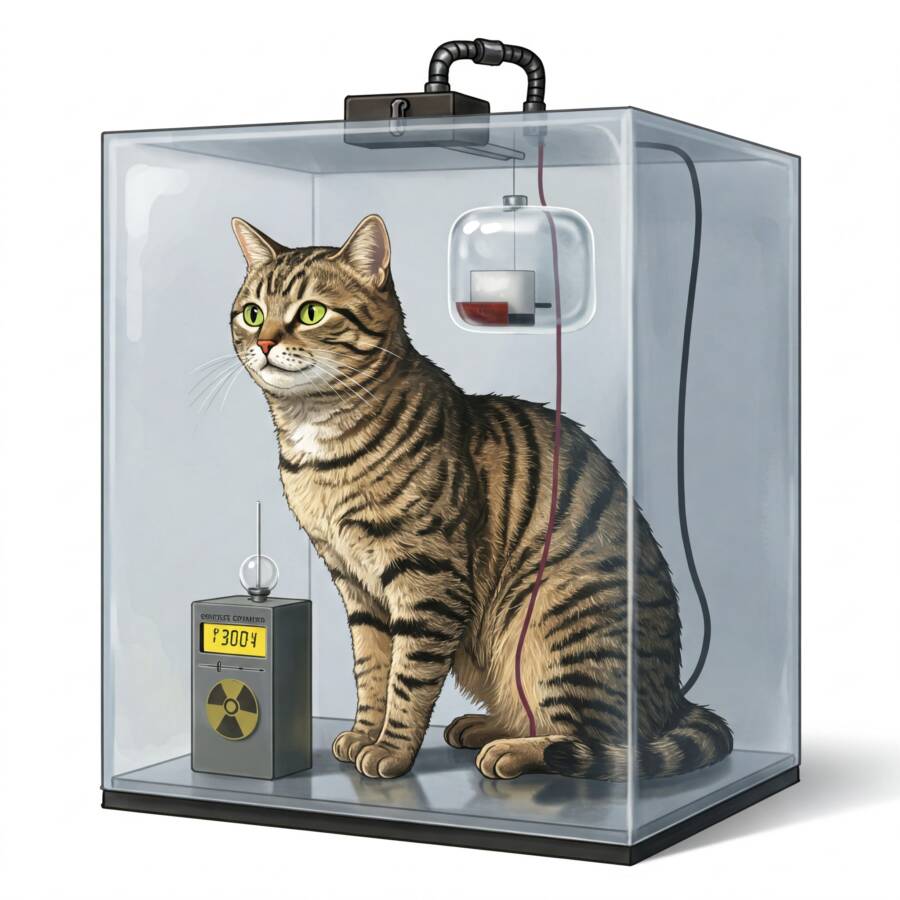Even though scientists are incredibly intelligent, there are some concepts in the world that they are unable to define. Curious about all the things scientists can’t figure out? See all of them below!
Science is one of the main pillars of today’s world! Even if some scientific notions are still frequently misunderstood, many things that were formerly assigned to the supernatural or gods have been properly explained by science. But while science keeps evolving and discovering a lot of useful things for our world, there are still several common things scientists can’t figure out why are happening.
These aren’t the “big think” puzzles like figuring out how to combine quantum physics and relativity or comprehend the true nature of time. These are the kinds of topics you’d think scientists would be knowledgeable about, like how bicycles are put in motion or why sand is so soft. But enough chit-chat; let’s discover them together!

1. Why we’re crying
Everybody cries! And even if it’s more of a painful experience, according to scientists, this is a therapeutic way of “getting rid” of the stuff that’s been haunting your thoughts, emotions, and other things that make your mind “cluttered.” But on the other hand, there is no benefit from a physical point of view. You feel puffy and tired after you cry for a longer period, and your nose becomes stuffy.
And now the question is: Why do we cry? This one appears to have been created as a social mechanism. It could have evolved, for instance, to inspire others to show empathy or submit (and therefore prevent more violence). And since tears are so obvious on the face, they continue to be an important means through which people express their emotions.
On the one hand, the procedure has a physiological advantage in that it aids in clearing the eyes of dirt. But from the scientific point of view…we can add crying to the list of things scientists can’t figure out why it’s happening.
2. The root cause of Alzheimer’s disease is still unknown
There is currently neither a cure nor a very effective treatment for Alzheimer’s, a neurological condition that causes dementia, despite the extensive research that has been done over the years. Why? For starters, the exact source of the sickness is not fully understood by experts.
The dominant idea has been that amyloid protein buildups, which result in plaques in the brain, are what cause Alzheimer’s disease. However, medications that aid in clearing amyloid from the brain don’t seem to be very effective in treating the condition.
Some experts believe that the focus on this particular idea has prevented enough attention from being given to other possible causes of Alzheimer’s, such as viral infections.
And unfortunately for humanity, this is one of the things scientists can’t figure out, but probably in due time they will! Fingers crossed for that!
3. Hiccups
One of the things scientists can’t figure out, (even if it’s just another usual human habit) is why we hiccup. It can be really frustrating to get the hiccups at an unexpected time, particularly if they don’t want to leave you as quickly as they came on. Two of the quickest treatments for hiccups are to hold your breath for a brief period or consume a spoonful of sugar with a glass of water while waiting for them to pass.
Nevertheless, regardless of how frequently they occur, experts are still baffled as to why they do. However, some views on the subject contend that it is a remnant of a previous period of the evolution of human life, while others contend that it may be related to the necessity for young animals to expel more gas.
What do you think about hiccups? Can we solve this mystery together? Tell us in the comments.
4. When we yawn, it’s contagious for everybody around us!
Yawning is probably one of the most common actions we do every day without realizing it. It’s similar to eating and talking, and if somehow you’re around others who are yawning at the same time, most likely you’ll start yawning too!
And given how widespread it is and how frequently it occurs, you may assume that there is a comprehensive scientific explanation for it. However, guess what? It isn’t. Since people probably take fewer deep breaths when they are weary, conventional thinking indicates the procedure is the body’s approach to delivering more oxygen-rich blood to the brain. The real neurology behind the requirement for this particular procedure, however, still needs some work.
Still, animals yawn as well. Scientists say that yawns may be contagious due to social mirroring, a process wherein animals imitate others, especially when it appears to be beneficial. Now, honestly, don’t you feel better after you yawn?
5. How anuses evolved
The fifth thing on the list of things scientists can’t figure out is why we have anuses. No, really? Apparently, after centuries of studying the evolution of the human body, scientists can’t explain how it developed or which creature had it first.
Animals had to use the same hole to feed and eliminate before the anus evolved. As a result of the anus, animal life on Earth was able to expand and develop new forms, making the system more effective. However, because the first creature who developed it didn’t fossilize, it’s impossible to identify it and get a deeper study into this.
If the article about things scientists can’t figure out tickled your curiosity regarding this topic, we at Science in the World recommend you check out this amazing book written by James E. McClellan III and Harold Dorn that can be found on Amazon at a great price of $28.14 for the paperback edition. Science and Technology in World History: An Introduction is the third edition of the book that compiles everything you need to know about science and technology. It has 552 pages, and we bet you’ll enjoy them until the very last!
6. Why do cats purr
These cute creatures that are filling the internet with pictures, reels, and funny videos are known for many things, but mostly for purring. And now comes the question: why do these balls of fuzz purr? Even though most people assume that cats purr only when they feel safe and happy some of them do that even when they’re afraid of something. It’s important to note that not all felines have the ability to purr; for instance, large cats like panthers, tigers, or lions cannot.
The reason why cats purr when you pet them is among the things scientists can’t figure out why it’s happening, and they don’t seem to find a logical explanation for it.

7. Why do we need sleep
Who doesn’t like sleep? Especially in the morning when the alarm starts ringing and all we want to do is flip over and continue dreaming. Although sleeping is another common thing for humans due to its necessity to function properly, scientists can’t figure out why we need it.
Since sleep makes humans and other animals more vulnerable to predators, it presents several evolutionary obstacles. The fact that it is unknown how we decide when to go to sleep and, more importantly, how to strike a balance and get the precise number of hours of sleep we require is more intriguing.
However, I guess this is one of the things scientists can’t figure out why it’s happening, but we can’t complain, and we are just grateful it exists!
8. …and why do we dream?
If why we sleep is another mystery that scientists couldn’t solve until now, why we dream is another thing that didn’t have a clear answer until today. Dreams are a huge part of our lives, and sometimes they are even better than reality. But how do they work, and why do we have them? There were two main questions to which nobody could give a straight answer.
Atonia, a lack of muscular action, is thought to be a defense mechanism to stop us from acting out our nightmares and hurting ourselves. Some people think that since the brain makes connections and creates actions during dreams, they help with memory processing. This explains why we could experience dreams about our recent activities. But what about those who seem totally unrelated to what happened to us? We assume that this is yet another question for which we will never receive an answer.
Do you have any burning questions that science doesn’t know how to answer? Let us know in the comments section below.
And if you want to cultivate more of your curiosity, check out this article 7 Body Parts Humans Don’t Actually Need…This Will Shock You!














